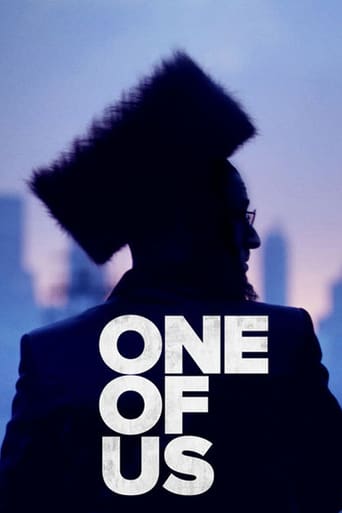julietkwan
What else can I say? It's an amazing documentary. Powerful stories and great music, the directors are FABULOUS so it got snubbed by the Oscars.
Ben Jammin
It will be difficult for me to find the right words to express my anger and dismay at Grady & Ewing and the message they sent with this film. While everything in the film is 100% truth, the lens through which these facts are presented was so narrow that it completely skews the realities of life and relationships in the many and varied Ultra Orthodox communities.For starters, what exactly does "ultra" Orthodox mean? There are so many unique and different movements within the general category of Hasidim, yet none of that is explained in the film. Satmar, Bostoner, Haredi, Chabad...the list goes on. Some ostracize members who leave or stop leading a halachic life, but most do not and to use so few examples, like the story of Etty, whose husband was undoubtedly mentally ill, as an implied baseline of "this is what to expect" is just irresponsible.I was shocked to find that almost 100% of the court paperwork and appearances were not here. The decision from the judge (as presented in the film) flies in the face of almost all New York State Court decisions. Something weird that was not in the film must have occurred for her to not get custody. This was completely cut.I personally have at least a dozen friends who have abandoned their Hasidic upbringing with none of the issues brought up in the film and most still quite close to their families. As a Jew that was brought up Reform, has lived in Israel and New York and now aligns with the "ultra-orthodox" Chabad movement, (the largest of all the Hasidic groups,) I can tell you quite matter of factly that the ostracization and evil behaviors portrayed in this film are not anything you will find in 95% of orthodox communities. I am not saying it does not happen, but compared to lets say Catholics or Mormons, there are a much greater percentage of happy families.I've made my point. Thanks.
Nozz
Without challenging the truth of the sad stories the movie tells, I still think it went overboard in the cinematic tricks that make the Hassidim look an alien peril-- photographing them from the back or in far-off groups as if they are too frightening to be approached, or showing fractions of their faces, or showing them moving quickly while the soundtrack plays slow, ominous music. The movie could have made its point-- to the extent that its point is legitimate-- without such techniques of audience manipulation. And the manipulation would be less distressing if the documentary were merely one among a large number of competing sympathetic and unsympathetic portrayals of Hassidism. As is, this is likely to be the only view of Hassidism many people receive, at least this year, and it will leave them with an imbalanced impression. Who would guess, after seeing these stories, that there are also people who willingly join the Hassidic movement without being born or brainwashed into it?
praescaio
This movie follows three separate stories on the same thread, the challenges of breaking away from a self-centered community and facing the ostracism it entails.The movie is complex, in the sense that every point of view depicted can be either justified or vilified without much effort, and deals with a theme that is both delicate and universal, not fitting in. The setting is hassidic, but I consider that more of a detail, for it could be any other closed group with very high demands of its members.



